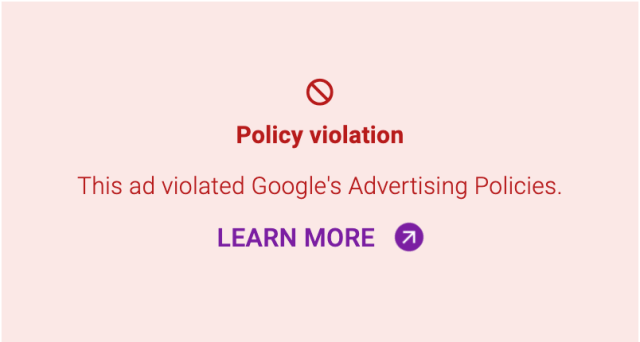Does Google not realize Beto O’Rourke is running for president?

It can be hard to keep track of all 23 Democrats running for US president, we know, but Google’s advertising enforcement systems don’t seem to realize that Beto O’Rourke is one of them.
Google has been treating Beto’s campaign ads as if they weren’t political content, raising questions over whether Google is capable of keeping its already anemic promise of transparency for political ads.

A screenshot of an ad from the Beto O’Rourke campaign as it appeared in Gmail last month.
Google has promised to put ads it receives from candidates for US federal political offices in its political ad archive, for transparency’s sake. But the Beto ads reviewed by Quartz were missing from the archive—until we alerted Google to their existence. Google’s own rules don’t allow any political content in Gmail ads, but Beto’s campaign ads kept showing up there.
A Google spokesperson tells Quartz that there was “error in our enforcement process” that led to both problems.
Google—along with Facebook—have written their own rules for the political ads they sell, after Russian interference in the 2016 US election made clear that there were consequences to selling just about anything to just about anybody. But Google doesn’t seem to be following them.
Google set itself quite lenient rules: While Facebook discloses ads about state and local elections (along with “issue ads” that don’t mention specific candidates), Google only concerns itself with ads mentioning federal candidates. And several weeks after mentioning Beto’s ads to Google—and after Google even told Quartz it had stopped showing the ads in Gmail—more had appeared in this reporter’s inbox.
Beto’s ads should’ve been pretty obvious for Google to spot. The former Texas state representative is a well-known political figure. It’s not immediately clear who—or what—made the choice to show the ads in Gmail, rather than elsewhere on the web, where Google’s rules allow the ads. Beto’s campaign declined to comment for this story.
Google’s decision not to allow political ads in Gmail is the company’s choice, and not something that it’s legally required to do. But the ads still showed up in Gmail, where they’re not supposed to be, and some of the ads still don’t show up in the ad archive, where they are supposed to be. Google says it has put all of the Beto ads in the ad archive. However, the content of the ads is hidden, since it violated a Google rule, so there is no direct way to tell which ad’s data pertains to which ad.
Here’s how the ad above appears in Google’s archive (based on Google saying this is the same ad):

This is by no means the first time Google has broken its own rules about political ads. Google promised Washington state’s attorney general that it would stop selling political ads there, settling a lawsuit over its alleged failure to comply with long-standing state disclosure rules. But it kept selling them anyways. Google says the way to check up on its work is to use its transparency archive—but when ads are missing from the archive, there’s little way of knowing what’s not there.
In a harder case, with a malicious political actor, would Google be up to stopping it?
“The platforms are bad at self-enforcement,” Katherine Haenschen, a professor of communications at Virginia Tech who studies online political advertising, tells Quartz, “which is why we need external legislation—then complaints about non-compliant ads can be filed with the FEC [Federal Election Commission], for instance. ”
The US Honest Ads Act, a bill with some bipartisan support—and which Facebook supports, but Google has not endorsed—would require the platforms to create archives of the political ads they sell, with the possibility of penalties imposed by the FEC.
But that bill hasn’t passed as of yet. When it comes to transparency into online political ads in the US, “right now there’s no real enforcement mechanism,” Haenschen says.
Sign up for the Quartz Daily Brief, our free daily newsletter with the world’s most important and interesting news.
More stories from Quartz:

